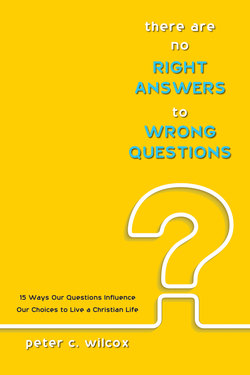Читать книгу There are no Right Answers to Wrong Questions - Peter C. Wilcox - Страница 5
На сайте Литреса книга снята с продажи.
Introduction
ОглавлениеIn 1902, Franz Xaver Kappus wrote his first letter to Rainer Maria Rilke. In it he asked Rilke to read and critique his poetry. Rilke refused to do so, but began a conversation with the young man. Kappus later published the letters he received from Rilke as Letters to a Young Poet.
Kappus sought out Rilke with one question: is there a great poet waiting to be born in me or should I let that dream go? Kappus wanted a map, some critical help, and a direct answer regarding this, his deepest question. He never got that. Instead, he got a conversation about life, love and purpose. Rilke could have answered directly, but he didn’t. Instead, he told Kappus to “try to love the questions themselves.” Kappus needed to learn that sometimes the answers aren’t as important as the way we learn to live among the questions.
Most of us know the feeling of longing for answers that do not come. Rilke, a devout believer, would have readily extended his advice to the spiritual level. In prayer, we too seek answers to our deepest questions. What am I to do in my life, with my life, with my love, my time, my gifts? Particularly in the dark night seasons of our lives, our questions can be many but the answers few. The challenge in those times is to befriend the questions. It can be good to ask, even when no answers are forthcoming. The questions can both inform and transform our living.
The Scriptures give us many examples of people asking questions and not getting answers, or at least not getting answers to the questions they asked. For example, the rich young man asked, “what must I do to be saved?” He asked feeling pretty good about himself as he was a pious, devout young man. He left with a new set of questions to consider. How could he learn to love the questions? Perhaps by re-evaluating his sense of personal pride in his perceived holiness. The woman at the well asked a diversion question about the place for proper worship. I don’t think she really cared, but she didn’t like where the conversation with Jesus was going. The answer she received left new questions. How might she learn to love the new questions? Maybe by sharing her experience of Jesus with her fellow Samaritans. The disciples, afraid of drowning in the storm while Jesus slept in the boat, asked “don’t you care if we die?” That’s the cry of a heart fearing it will not survive. Jesus’ response left them with a new question about the depth of their faith if they would be right in Jesus’ presence and still be so afraid. How could this new question bless them? By reminding them that neither life nor death in the company of the Lord is the last word.
In Rilke’s first letter, he told Kappus “nobody can advise you and help you, nobody.” What might Rilke’s adamant negative response have produced in Kappus? I can imagine anger, frustration or maybe despair. “If you can’t help me, who can?” But Rilke’s next two sentences are interesting. While refusing to be the solution himself, he does offer a path forward. “There is only one way. Go into yourself.”
This book is an invitation to go into ourselves, to look at the questions we ask about life. Most of us don’t think very much about our questions. We are too busy trying to find answers. But behind any answer, there is always a question. Sometimes, the question isn’t clear to us; sometimes, it is not very well articulated, even to ourselves. But it is always there. And as Rilke told Kappus, there is only one way to find the answer. Go into yourself.
The reason why the questions we ask in life are so important is because they give direction to our lives. It’s the questions we ask that give rise to our answers which in turn influence the many choices we make about how to live our lives. That is why it is critical to ask the right questions. And, as we will see in this book, it’s our choices in life that will determine the kind of person we will become. And our choices will largely be determined by the kinds of questions we ask.
